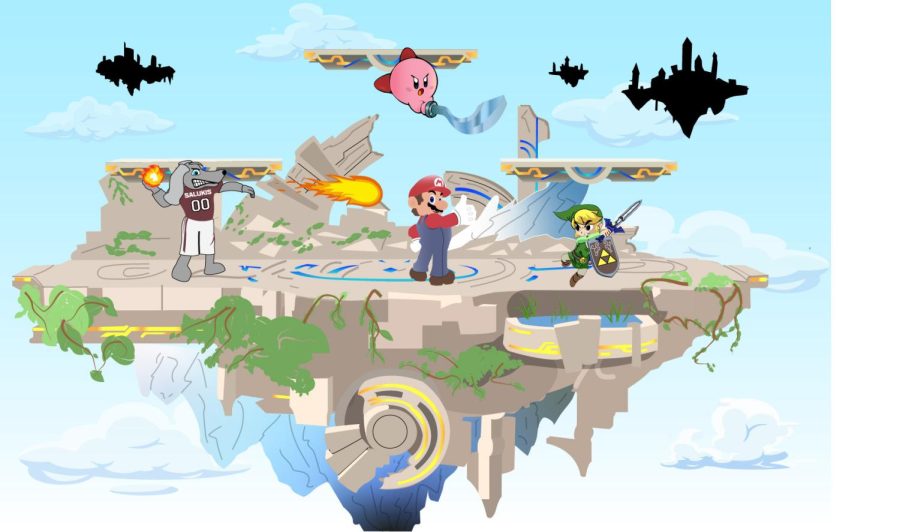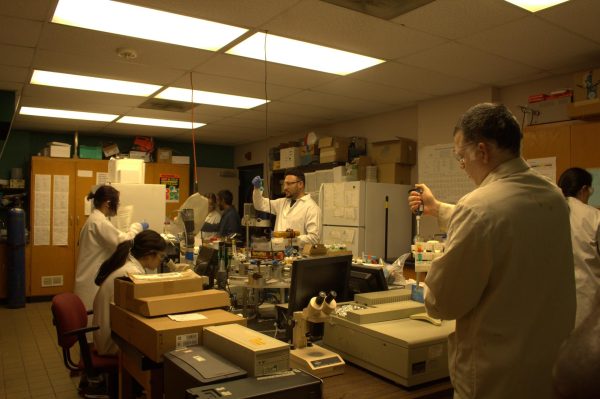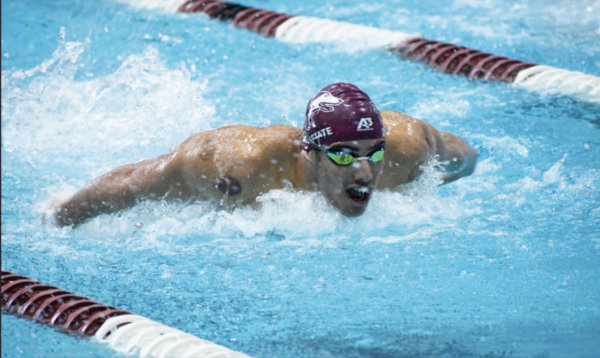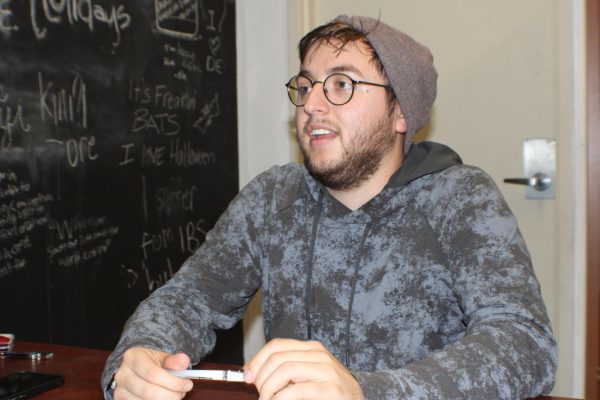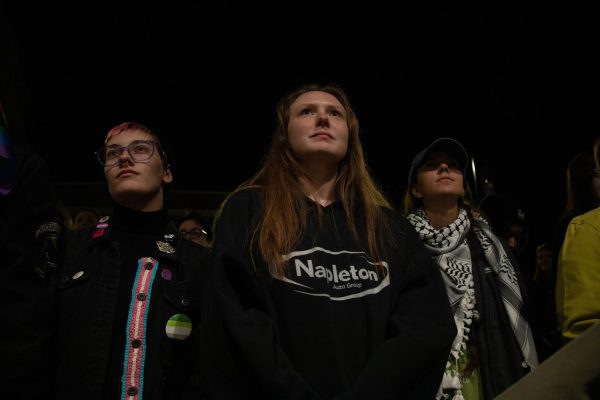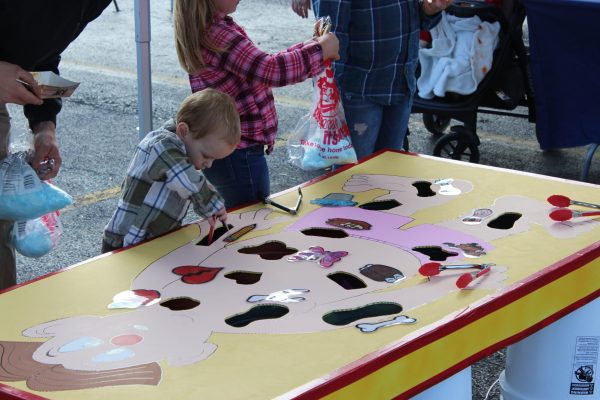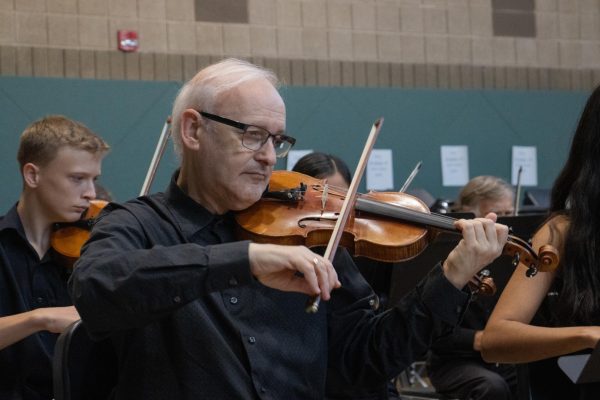E-Games: Fighting for their space
At 6 p.m. on a Saturday, the Student Center is quiet, and empty. The wide corridors stretch out to either end of the building, like gaping holes in what is usually a bustling, vibrant space. Some students are doubtless at home, studiously preparing for the final week of classes before Thanksgiving break grants them a long awaited reprieve. Many others are with their friends, living it up before Thanksgiving break deposits them in the middle of finals, but, for more introverted students who aren’t inclined to party, weekends off campus can make it difficult to connect with other students.
Chaotic school schedules in addition to long work hours can make it inconvenient to get involved with RSOs that are active during the week, especially if those RSOs deal with heavy academic, or political matters. Students need spaces to relax, and cool off after a long week of molding new information into their minds.
SIU’s eSports Club serves as a safe haven for all students interested in gaming, whether it be casual or competitive. Though it has meetings nearly every day of the week, including dedicated gatherings for Overwatch, Call of Duty and Super Smash Bros. Ultimate just to name a few, the eSports Club always has Fighting Games Club on Saturdays at 6 p.m.. Though the term “eSports” and the prospect of playing fighting games with no prior experience both can be off putting, for interested students, the reality couldn’t be further from the most common gamer stereotypes.
Advertisement
In the eSports Center, which can be entered through the bowling alley, the fighting games meeting was more like a small party. Everyone was cheerful, and quick to invite new players over to join the fray. The “fray” being a simple game of jackbox with several friends, and friends are what they feel like after a couple rounds of jokes.
“The community seems to be very friendly, accepting…they welcome anyone in with open arms and they’re willing to teach, so it’s really friendly,” said Stephan Wright, a sophomore who joined the club a month ago.
Nothing breaks the ice like playing a simple game with some genuinely good natured humor, something that many online gaming communities struggle with, in part due to the lack of empathy that not interacting face to face can breed.
“I think a good community definitely needs to have a welcoming environment and an in-person aspect, because right now our club is primarily online,” said Nolan Mense, the president of the eSports Club. “People like to stay at home and play games rather than come here, which we’re trying to improve by having events like these.”
Though their Saturday meeting had a good turnout for the club, about 7 people out of the clubs 60 due-paying members, many of the gamers in the club prefers to meet up online due to the limitations of the computers provided by the school.
At first glance, the computers in the eSports center are a gamer’s dream: sleek tall towers with fans purring and LEDs gently pulsing along their edges. There are over a dozen in the eSports center, with several hooked to large flatscreens plating the walls. But, especially in gaming, a few years make the difference between a max settings capable contender and a mid to lower tier machine.
“They have i7s. 8700ks [processors], Mense said. “Which is an alright processor, but now they’re about 5 years old, maybe even older. They’re really showing their age. Alienwares have a reputation for not being the best, just based on how they’re engineered. These have very poor airflow, so there’s a lot of performance left on the table [inadequate cooling systems can cause PCs to lower their performance to avoid damage].”
Advertisement*
Oftentimes, members of the club have their own modern gaming PCs at home, but students are prohibited from bringing their own devices into the eSports center, which charges students three dollars an hour to play on the school’s devices.
“At one point I was told the statistic that if one dollar was added to every student’s tuition, students could use this space for free, but the administration said no,” Mense said. “I’m guessing the three dollar fee is to either generate revenue or pay off what this space cost.”
While this could discourage casual gamers or students just looking to try out gaming, that’s what the eSports club is for. Students that are general tier members of the club are allowed to come and play fighting games, Smash, Rhythm, and others for free. Students that are active tier members pay a five dollar fee once a year in exchange for hours in the more competitive titles, such as Valorant, Rocket League, and Overwatch, for which the club only buys hours for teams. The eSports Club gets a special rate of $60 for 42 hours per player, usually paying $2000 to $4000 dollars of hours a year. The club also occasionally sends teams up to Edwardsviles to play in tournaments against the other branch of the University. Competitive Rocket League is even streamed on twitch at MattM_Gaming.
Though more competitive gamers might have a need to be picky about the performance of the school computers, many casual gamers in the club take full advantage of access to the relatively fast computers in the eSports Center. Without the ability to rent out a high powered computer, it can cost thousands of dollars to buy a decent gaming computer.
“I think the eSports computers are very good, very high tech,” Wright said. “I left my rig at home so I have to rely on the eSports computers. […] It’s just a way for me to relax when I’m not studying. I’ve met many friends through the eSports arena and all we do is play fighting games and discuss video games.”
It’s easy to underestimate the social power of gaming, especially when many games are so complex and time intensive that few of the uninitiated will ever take interest in them, but many games are as simple as board games, and twice as fun because there’s no arguing over the rules when Uncle Davis cons little Billy out of Boardwalk again. No one has to play the part of the computer, calculating player outcomes and deciding what’s allowed. At the end of the day video games are often at their best when they’re played in in-person groups, despite the great freedom and comfort that many gamers enjoy when playing online from the convenience of their home.
It’s for that reason, among others, that the eSports club currently has a petition with over 150 signatures toward having their own space on campus, where students would be free to set up their own hardware and meet free of distractions.
“The hardware isn’t the best in here, we pay for hours to use it,” Mense said. “Sometimes we can’t get in here because if there are classes or events they have precedence over us. […] even other sports clubs, they use the stuff that the Rec [Recreational Center] provides. They just fill out a time slot and they can use it. Why do we have to pay?”
Daniel Bethers can be reached at [email protected] or on Instagram @commonitem6damage.
Advertisement



